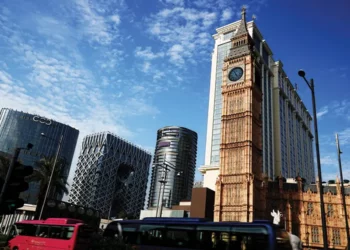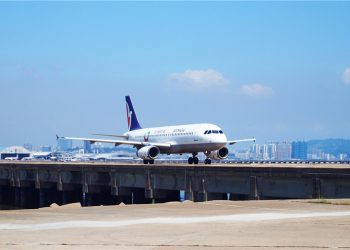Welcome to the thirteenth and penultimate in a series of articles on the Macau gaming law IAG is publishing throughout the month of March and early April:
| Part | Date | Article |
|---|---|---|
| 1 | Wed 2 Mar | Here comes the extension … 26 June now seems impossible |
| 2 | Fri 4 Mar | Cross-shareholding provisions crossing the line? |
| 3 | Mon 7 Mar | Problematic consequences of the satellite purge |
| 4 | Wed 9 Mar | Does the chip cap need a rethink? |
| 5 | Fri 11 Mar | Reversion of gaming areas – a problem no one is talking about |
| 6 | Mon 14 Mar | Directors’ liability – changing centuries of corporate law? |
| 7 | Mon 16 Mar | Junkets, collaborators and concessionaire liability |
| 8 | Fri 25 Mar | Minimum income – a stealthy gaming tax rate hike? |
| 9 | Mon 28 Mar | National Security – a get out of jail free card for the government? |
| 10 | Fri 1 Apr | Confusion reigns over so-called “Managing Director” shareholding |
| 11 | Sun 3 Apr | 10-year concessions hamper investment in Macau |
| 12 | Wed 6 Apr | Too broad suitability checks will dilute their effectiveness |
| 13 | Thu 7 Apr | Provisions regarding other jurisdictions can cause legal conflict |
| 14 | Fri 8 Apr | And that’s a wrap – where to from here? |
Putting aside the past few years with its shocks of COVID and the economic decoupling we are currently witnessing because of the conflict in Ukraine, the modern-day world is highly interconnected. It’s not unusual to see large companies operating globally – just look at tech companies like Apple, Google and Facebook – er, sorry, Meta. The rise of social media and the ubiquitousness of YouTube mean that cultural, social and economic borders between nations are being blurred as part of the relentless march of globalization.
So too with our very own IR industry. The liberalization of the Macau gaming industry at the turn of the century saw three of the US big four – MGM, Sands and Wynn – enter Asia via the Macau gaming market. The fourth of that quartet, Caesars, has repeatedly expressed its desire to expand to Asia whilst repeatedly dropping the ball in doing so. Sands has experienced great success with Marina Bay Sands in Singapore, and MGM will likely open an IR in Osaka, Japan – eventually.
Galaxy, surely the greatest example of a success story for Asian home-grown IR companies, has vigorously pursued opportunities in Japan and the Philippines as well as acquiring around 5% of both SBM in Monaco and of Wynn Resorts in the US. Australia’s Crown Resorts acquired Aspinalls in London, and eagerly explored the US market for years. Japan’s Sega Sammy is a 45% joint venture partner in Korea’s Paradise City IR at Incheon, and leading Philippines IR company Bloomberry Resorts, owner and operator of Solaire at Manila’s Entertainment City, owns Jeju Sun on the Korean island of Jeju and over the years has made no secret of its international expansion plans. SkyCity, a New Zealand company, operates the Adelaide Casino in Australia. Casinos Austria operates the Reef casino in Cairns, Australia. Cambodian leading IR company NagaCorp is building an IR in Vladivostok, Russia – albeit currently stalled due to the Ukraine situation.
The list goes on and on. Inter-jurisdictional ownership and operations are now firmly part of our industry. It’s with this in mind that I read, with some perplexity, article 22C of the new Macau gaming law, which relates to the issue of Macau concessionaires or their controlling shareholders operating casino gaming in other jurisdictions.

Article 22C(1) provides that concessionaires intending to operate gaming in other jurisdictions must first obtain the authorization of Macau’s Chief Executive to do so. It provides no guidance on what critieria the CE might use to base his decision, or what the policy objective of this requirement is. Let’s leave that as an open question.
Article 22C(2) provides that concessionaires must notify the Gaming Inspection and Coordination Bureau (DICJ) should any 5% or more shareholder operate – or cease to operate – in another jurisdiction. They are also required to notify the DICJ should such a shareholder become the subject of an investigation by a gaming regulator in another jurisdiction, if that shareholder also holds at least a 5% share in the operator in the other jurisdiction. These provisions seem quite reasonable given that the efficiency, suitability and appropriateness of a gaming operator’s activities in one jurisdiction will likely be a very good indicator of the efficiency, suitability and appropriateness of the Macau activities of either that same operator or an operator with a common 5% shareholder.
However, it is article 22C(3) which seems confusing, at least to me. This sub-article reads, in full, as follows:
If a controlling shareholder of a concessionaire is the operator of games of chance in casinos in another jurisdiction, or is the controlling shareholder of an operator of games of chance in casinos in another jurisdiction, the controlling shareholder may only transfer its capital contribution in the concessionaire when it has received written instructions from the organization regulating gaming operational activities in such jurisdiction stating that it may not continue to be a shareholder of the concessionaire, and only where such instructions have arisen from acts not attributable to the concessionaire or the controlling shareholder.
Huh? What’s the point of this provision? Let’s break it down. Let’s assume company A is the controlling shareholder of company B which is a Macau concessionaire. It’s also the controlling shareholder of company C which operates gaming somewhere else. MGM, Sands and Wynn in the US all fit company A into this scenario. Article 22C(3) provides that the only reason company A is allowed to transfer its shareholding in company B, the Macau concessionaire, is an order from the regulator of company C, in the other jurisdiction (that is foreign to Macau), to do so. Why would the Macau government want to limit company A in this way? How does that benefit Macau?

Further, the final branch of the provision, “… and only where such instructions have arisen from acts not attributable to the concessionaire or the controlling shareholder” creates potential for an irresolvable legal conflict. What if the instruction of the foreign regulator was indeed motivated by an act committed by the concessionaire or controlling shareholder?
Let me posit a scenario. Let’s say a Macau concessionaire (MGM, Sands or Wynn) performs some act the Nevada Gaming Control Board (NGCB) doesn’t like. It doesn’t necessarily have to be a bad act. It just needs to be one the NGCB takes a disliking to for whatever reason, rightly or wrongly. As a result, the NGCB instructs MGM, Sands or Wynn in the US to divest itself of its interest in its Macau concessionaire. But it can’t, because article 22C(3) of the Macau gaming law says it can’t.
This would give rise to the absurd situation where Nevada law is forcing the company in the US to sell its Macau subsidiary, but Macau law prohibits the US company from complying with a legally valid instruction from Nevada in the US – a place where Macau law doesn’t apply!
Surely this is not the policy intention of the law. This is an area the Macau Legislative Assembly might be well advised to look at during its current review of the law, lest we here in Macau one day find ourselves in an embarrassing legal quagmire.
The next and final article in this series will be published in the next few days.
| Part | Date | Article |
|---|---|---|
| 1 | Wed 2 Mar | Here comes the extension … 26 June now seems impossible |
| 2 | Fri 4 Mar | Cross-shareholding provisions crossing the line? |
| 3 | Mon 7 Mar | Problematic consequences of the satellite purge |
| 4 | Wed 9 Mar | Does the chip cap need a rethink? |
| 5 | Fri 11 Mar | Reversion of gaming areas – a problem no one is talking about |
| 6 | Mon 14 Mar | Directors’ liability – changing centuries of corporate law? |
| 7 | Mon 16 Mar | Junkets, collaborators and concessionaire liability |
| 8 | Fri 25 Mar | Minimum income – a stealthy gaming tax rate hike? |
| 9 | Mon 28 Mar | National Security – a get out of jail free card for the government? |
| 10 | Fri 1 Apr | Confusion reigns over so-called “Managing Director” shareholding |
| 11 | Sun 3 Apr | 10-year concessions hamper investment in Macau |
| 12 | Wed 6 Apr | Too broad suitability checks will dilute their effectiveness |
| 13 | Thu 7 Apr | Provisions regarding other jurisdictions can cause legal conflict |
| 14 | Fri 8 Apr | And that’s a wrap – where to from here? |

































